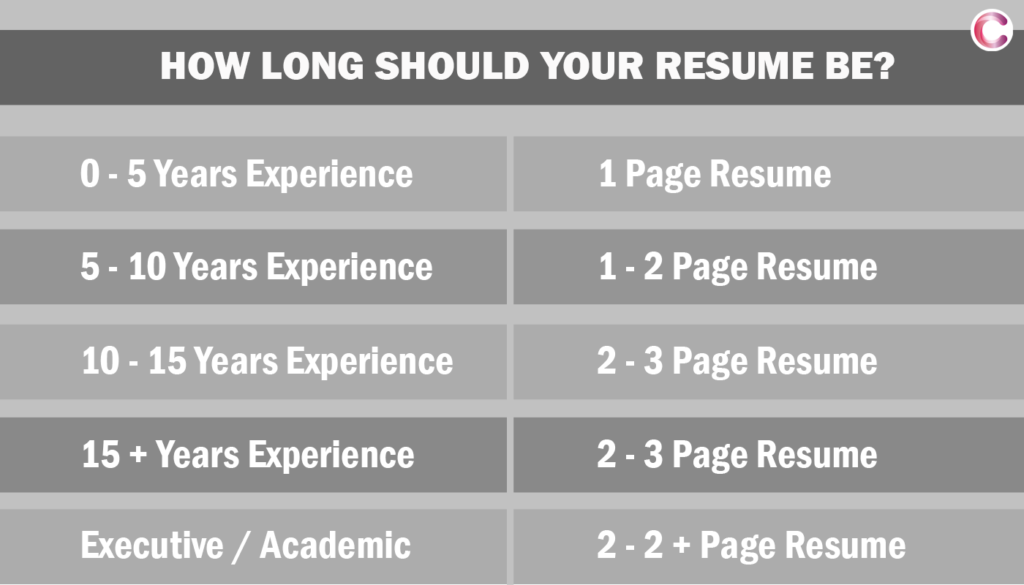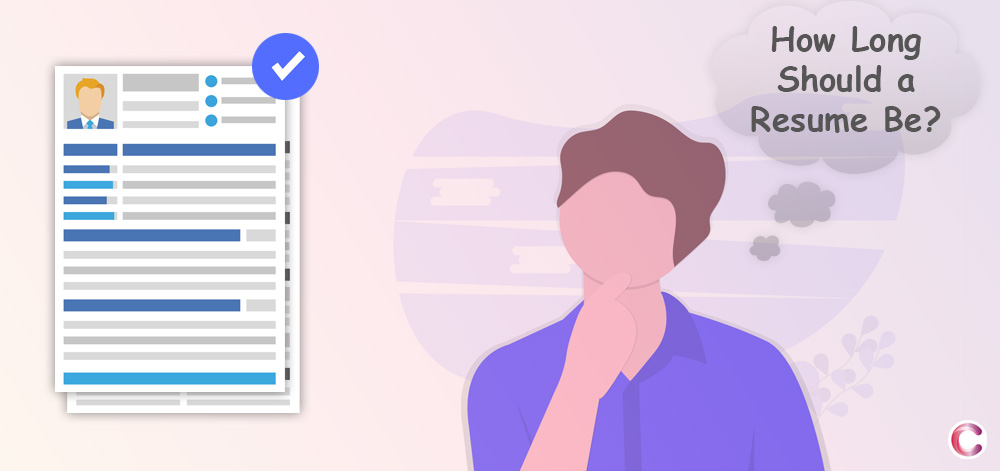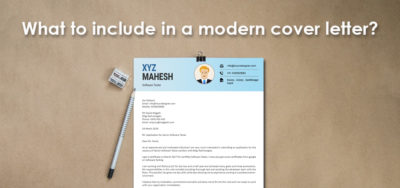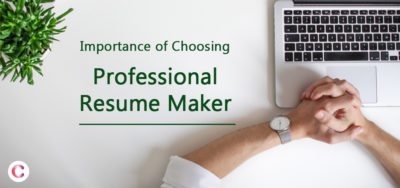If you are researching on resume writing guides and best resume practices, some question might hit your mind: How long should a resume be? Or, How to manage a resume length?
Many experts say a resume must be one-pager, while some say it must be two pagers. But actually, it depends.
Why is the confusion?
Many people still don’t know the actual difference between CV and Resume. In the past, the resume must be printed and sent to the employer by post. The 2nd or 3rd page of the paper resume sometime went missing.
Things are changing. Today, both the recruiter and the candidate use emails for job applications. It doesn’t mean that the resume length doesn’t matter, but if a resume takes 2 pages to cover proper information, one can go for a second page.
This Resume guide will answer these questions:
- How long should a resume be?
- How many pages should a resume be?
- What is the ideal resume length?
- What is the maximum length of a resume?
- Does a resume have to be one-pager?
- How to manage resume length?
How long should a resume be?
- A resume with less than 10 years of experience or changing career usually fit in 1 page.
- A resume with more than 10 years of experience usually needs 2 pages to complete.
- Academic resumes, Chief Executive Officer’s resumes, and Federal resumes may need 2+ pages.
- A CV (Curriculum Vitae) sometimes go 3+ pages.
The length of a resume should be based on career experience and job type. For a fresher or recent graduate, there is no professional experience to mention. Even a candidate with less than five years of experience or applying for a new career field has a few organizational experiences and accomplishments to mention in their resume.
For a mid-level experienced candidate with less than ten years of experience might go for a two-pager resume, if only have plenty of accomplishments or many organizational experiences to show. A technical professional might need to show the technical skills he or she has. Hence, a two-pager resume is required.
Academic resumes, research fellow resumes, and federal resume has a long list of research papers, certifications, patents, and publications to show. Senior-level professionals or executives also have a long list of accomplishments and career paths. These job seekers may need a three-page resume or even longer.

What is the maximum length of a resume?
There is no such thing as a maximum pages limitation for a resume. If only relevant content needs an extra page to complete, one can go for it. Filler words occupy extra space. So, you have to remove filler words throughout the resume.
Generally, a resume of a person who has a career experience of more than 10 years, takes 2 pages to complete.
If you have plenty of unique achievements to fill more than 2 pages, and that also looks impressive, you may go for one extra page and express yourself properly.
Does a resume have to be one-pager?
No, a resume doesn’t have to be one-pager. I can say, for a proper resume, the more concise, the better. But it doesn’t mean that you have to compromise with the relevant content to fit your resume on one page.
What if you’ve got 20 or 30 achievements throughout your career. Or you’ve done many projects as a project manager. Though it is not required to count all those in the resume, top accomplishments or projects may take a whole page to sit properly, and you will need one extra page to mention other things.
How to manage resume length?
- Keep relevant content only:
If you want to add all the achievements and accomplishments, you might end up with a long resume. Always keep in mind that the recruiter will spend only 10 seconds to read your resume. So it should be short and only relevant content should be there. Avoid any information that does not require to show for a particular job posting. I advise you to read the job application requirements and write your resume with proper keywords. That will surely make your resume more effective.
- Discard filler words:
A filler word is a short, meaningless word to include in a resume. It not only degrades the quality of writing but increases the word count. Avoid any filler words to make your resume compact and easy to catch.
Examples: Basically, Just, Very, Like, Sort of.
- Ditch ‘Reference’ section:
The reference section in a resume is actually not needed to add. Sometimes, it saves a lot of space. If the hiring manager finds something attractive in your resume and wants to interview you, they may ask you to produce a reference if you have any.
- Use a proper sized font:
There are many professional font styles that you can use in your resume. The actual space the alphabets consume is different for each font style, though the font size remains the same. You can see, the ‘Calibri’ font size 10 is actually smaller than ‘Arial’ font size 10. Both the fonts are professional fonts and can be used in a resume. If you have more content to write, you can choose ‘Calibri’ over ‘Arial’. The minimum font size should be 10.
- Leave proper margin and spacing:
You can try reducing the margins for some extra space, but don’t make it smaller than half-inched for each side. Leave proper space between lines and paragraphs and try to break long paragraphs into bullet points. Proper spacing is a must for a proper resume.
- Keep it clean:
A neat and clean resume always get special attention. Though it is recommended to make a short resume, you should never compromise with the resume structure. Leave ample white space throughout the resume and arrange all the sections properly. Make sure it looks clean and professional. Choose a professional resume template for a better result.
There are many professional resume writers who can help you write your resume. You can also get your resume screened by experts for free to know if there is any flaw in your resume.


